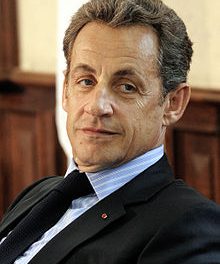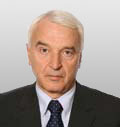
Bo Xilai
6 October 2012. Bo Xilai, the ousted Chongqing leader, will go on trial shortly on charges of covering up murder, corruption and abuse of power. The Chinese Communist Party (CCP) will deprive him of both his party affiliate in and state posts. The CCP said that Bo “had or kept sexual relationships with a number of women”. The Daily Telegraph of the U.K. reported Sunday on a list of Bo’s mistresses in light of the Communist Party’s announcement. Chang Weiping, a former reporter with the Hong Kong daily Wenweipo, told the Telegraph, “Even estimated conservatively, Bo would have some 100 mistresses,” adding, “Bo had massive power. He had girlfriends and introduced women to other officials as if they were goods.” It was rumoured that Bo’s women included anchors with China Central TV, actresses, former senior staff at the Chongqing city government, and a policewoman. Instead of the usual wheeling and dealing behind closed doors, Bo chose to push for his promotion to a position in the Standing committee of the Politburo openly in the public. This no doubt offended and challenged the party leaders. This was his main misstep. In Chongqing he busted crime, promoted Maoist revivalism and offered welfare provision. This he branded as his ‘Chongqing model’. This was at odds with China’s policy of opening up and turning away from Mao’s chaotic politics. However, Bo’s supporters feel that the policies of current Communist Party leaders are widening inequality and breeding social unrest and formed a movement, known as the ‘new left’. The new left remains relatively small and obscure consisting of a loose collection of academics, lower-ranking government officials, writers and overseas activists. The new left advocates a stronger hand for the state in economic planning as well as a return to the values put forth by the late Chairman Mao Zedong. Dealing with the new left needs some balancing of the party. Rejecting them outright would risk exposing party leaders to sensitive questions around the very foundation the party is built on. Appearance of Maoist imagery and slogans during officially tolerated anti-Japanese protests in a number of Chinese cities last month underscored leaders’ fears that support for the new left could spread derailing the progress achieved sp far. Many protesters said in interviews the demonstrations were also a way to express dissatisfaction with what they see as weak party leadership and Beijing’s inability to protect China’s interests. In any case Bo has left the Chinese leadership a legacy of problems to be resolved over the next decade. Bo was Commerce minister under the watch of Premier Wen Jiabao from 2002 to 2007. Wen was not pleased with Bo’s self promotion and moved him from the cabinet to Chongqing in 2007. Wen publicly rebuked Bo over his handling of Wang Lijun scandal and warned that China had suffered enough during the Cultural Revolution and it is not in the public interest to repeat such a chaos one more.













